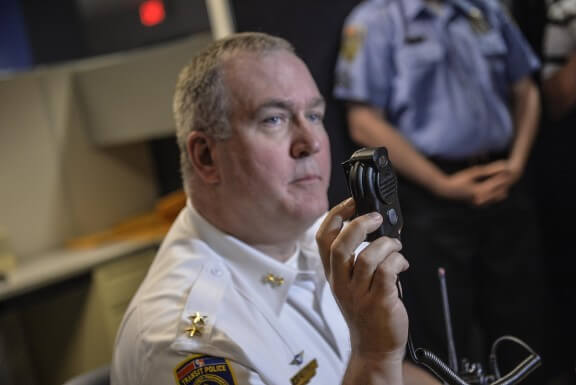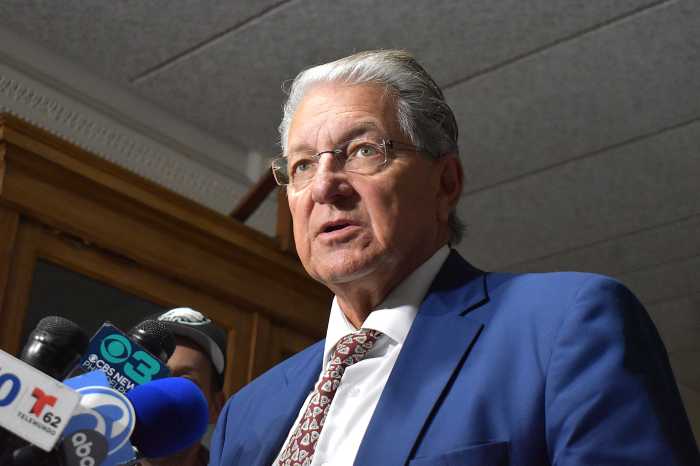SEPTA will have to rewrite discrimination and retaliation policies, provide additional training and pay out nearly $500,000 following allegations against a former transit police supervisor and chief Thomas Nestel III, who abruptly resigned a month ago.
The deal, which the authority signed to settle a federal civil rights case, will subject the transit police department to U.S. Department of Justice oversight for a period of four years.
A current SEPTA patrol officer, Jon Randolph, and two now former officers — Nathan D’Ettorre and Anthony Lederer — filed complaints in 2019 alleging the department was creating a hostile work environment. The case was referred to federal prosecutors.
As part of a specialized investigation unit, the three officers were supervised by Bryan McCauley, who they allege frequently targeted Randolph, who is Black and Muslim, with race- and religious-based harassment.
McCauley, prosecutors said, printed out a social media post using the N-word and hung it above his desk as the “squad’s mission statement.” He is also accused of making racist jokes about Randolph and other Black employees liking fried chicken.
Federal authorities said McCauley showed Randolph videos of ISIS members beheading people and told him Muslims are terrorists.
In addition, McCauley pointed a loaded gun at all three officers, telling D’Ettorre, “Nathan, today might be the day,” according to prosecutors.
McCauley allegedly threatened to stab D’Ettorre and Lederer, who are both white, and authorities said he told D’Ettorre he would kill him in an active shooter scenario and frame the suspect.
SEPTA spokesperson Andrew Busch declined to comment on the specific allegations. The authority did not admit to any wrongdoing, as is typical in cases settled before trial.
Prosecutors said McCauley threatened retaliation on “an almost daily basis” if any of the three officers reported his behavior, indicating he had a close relationship with Nestel.

Nestel, who had worked with McCauley years before, hired him in 2015 even after he had been fired from a previous police department, according to court documents.
SEPTA’s Police Board of Inquiry, upon hearing the allegations, recommended that McCauley be fired, but Nestel allowed him to resign without discipline in late 2019.
Randolph, Lederer and D’Ettorre, after submitting complaints about McCauley, were threatened with polygraph tests, faced discipline and received a letter from Nestel criticizing them for risking SEPTA’s reputation, authorities said.
SEPTA, prosecutors allege, also attempted to fire Lederer for offenses that do not usually result in a termination, backed up by claims that were not supported by facts.
Nestel retired on short notice July 5 after a decade as the authority’s top cop. He was replaced by 28-year transit police veteran Charles Lawson.
As part of the settlement, known as a consent decree, SEPTA was ordered to submit revised transit police discrimination and retaliation policies to the Justice Department for approval within 60 days.
Among the mandated changes will be that the police chief does not have the authority to unilaterally disregard PBI findings, according to the document.
Over the next three months, SEPTA must also bring in an outside expert to provide training to the authority’s human resources department and equal opportunity office. Federal authorities will have to approve the trainer and their materials.
Such sessions must also be required for transit police, the degree says.
The Justice Department will be provided documents relating to on-the-job discrimination and retaliation.
In a statement, SEPTA said many of the changes are already underway.
“We believe this process will result in a stronger Transit Police Department that is well-positioned to meet current and future challenges,” the authority said.
Under the consent decree, SEPTA will pay Randolph $268,000 in damages, and Lederer and D’Ettorre will each receive $105,000.




























